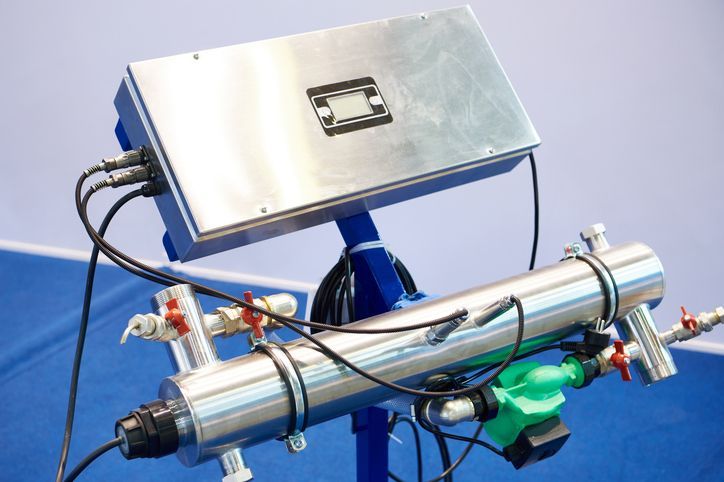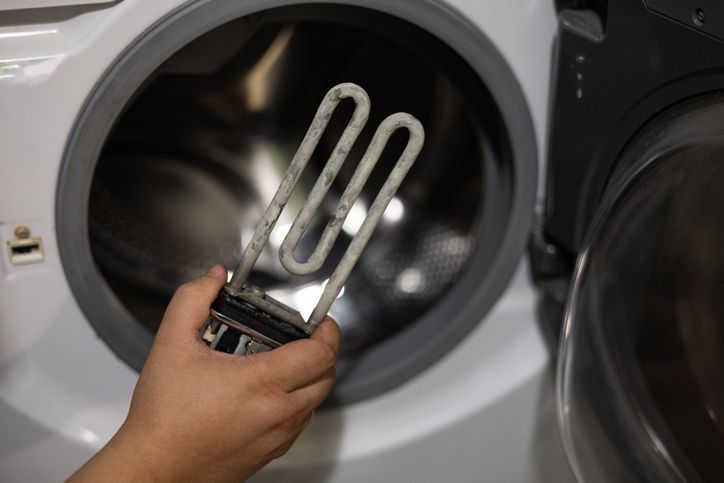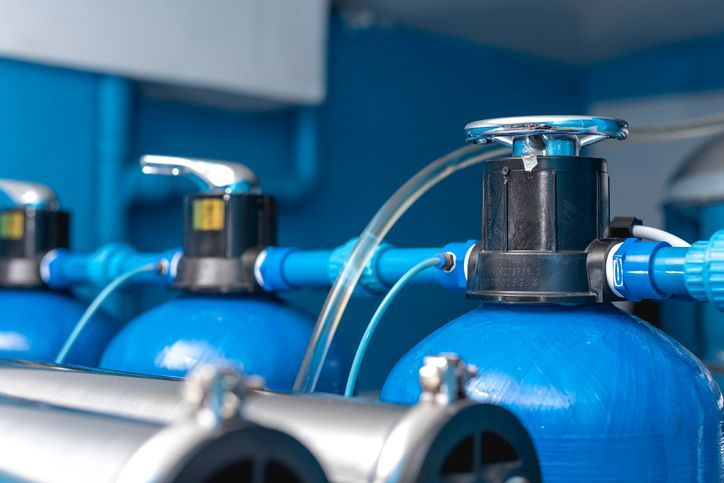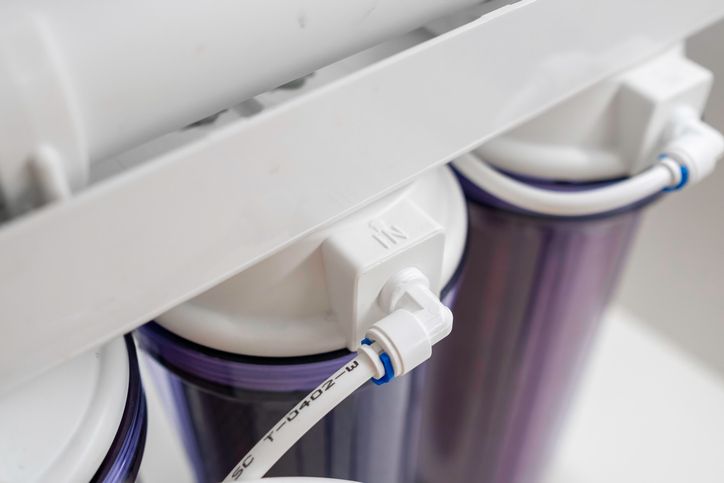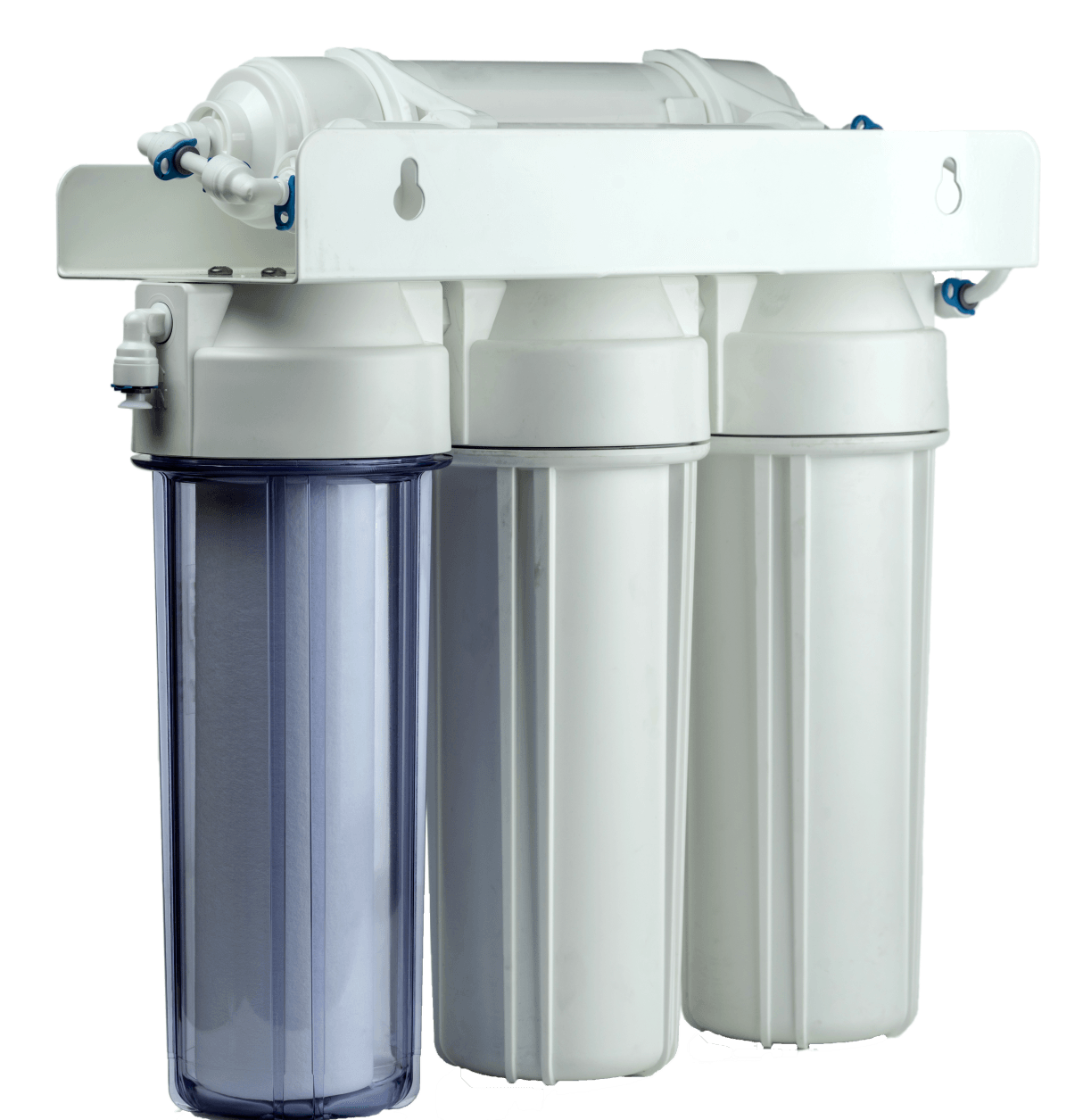Biggest Issues with Well Water
If you are a well water user, turning on the tap and seeing discolored, cloudy, or foul-smelling water flow out, may fill you with dread. These are common signs that something is wrong with the well.
Although these signs indicate there is an issue with the well, there is no need to fear because many common well water problems can be solved. The first step in addressing these issues is knowing how to identify the cause of the well problems and the solutions you can use to take quick action and restore your water supply.
Common Well Water Problems and How to Solve Them
Hard Water
The issue of hard water is caused by high levels of calcium and magnesium. This well water problem is very common throughout the U.S. with 85% of the nation affected.
Common signs of hard water include:
- Flakey hair and dry skin
- Stained bathtubs and sinks
- White residue and spots present in dishwashers and on dishes
- Scale build on water-based appliance faucets
- Low water pressure caused by mineral accumulation in clogged pipes
- Clothes lose their color and feel rough
Consequences of Hard Water
Over time, hard water can become an expensive issue, damaging plumbing, clothing, and appliances. Hard water causes clothing to lose color and become rougher, requiring clothing to be replaced more often. Scale buildup on sinks, faucets, and bathtubs is unsightly and make appliances less efficient. Hard water is not a significant health risk, but it can cause premature aging to hair and skin if not resolved.
Solution for Hard Water
To resolve your issue with hard water, add a water softener to your water filtrations system. Consider using a salt-free water softener for an efficient and environmentally friendly alternative to salt-based systems that produce massive amounts of briny wastewater.
Fluoride
Fluoride is a mineral that is found in all-natural water in varying amounts. It can only be detected through well water testing. The EPA recommends a level of 0.7 mg/L for fluoride, but keep in mind that well water levels can be higher.
Common signs of fluoride include:
- Dental Fluorosis. This condition causes white or brown stains on the teeth, predominantly in children.
Solution for Fluoride
Installing a point of use reverse osmosis water filter is a very effective way of reducing fluoride from your drinking water.
Turbidity
Well water can be plagued with high levels of total suspended sediment due to water drilling, water runoff, or any other type of activity that disturbs the earth. These high sediment levels may indicate that there are oxidized metals, like iron and manganese, microbial life or pollutants in the water.
Common signs of Turbidity
- Dirty, murky or cloudy-looking water
Consequences of Turbidity
If the turbidity in your water caused by microbial life, you could be at risk for viral or bacterial infections. Turbidity can not only affect your water quality, but the grit from the turbidity can also damage water pumps.
Turbidity associated with microbial life could result in bacterial, viral, or bacterial infections in both adults and children.
Solution for Turbidity
Be sure to check that your well screen is sized correctly and in good working condition. You can reduce turbidity by adding a sediment pre-filter to your current water filtration system. If the turbidity is microbial, you may need to add UV protection as well.
Fecal Bacteria
Human an animal waste contains harmful fecal bacteria such as E. coli that can pose health risks to you and your family if it makes it into your drinking water. These bacteria can infiltrate your well water through a variety of channels such as cracks in the well walls, agricultural runoff, and overflowing sewage lines and septic tanks.
Common signs of fecal bacteria:
- Increase of gastrointestinal illness throughout the household
- In some cases, the water may have an odor
Solution for Fecal Bacteria
Existing fecal bacteria can be killed by chlorine shocking the well. As an added layer of protection, consider adding a point of entry water filtration system with UV protection. This will help prevent the bacteria from reproducing, lowering your risk of illness or infection.
Acidic Water
There are a few occurrences that can cause the pH level of your water to drop below 7.0 pH including acid rainfall, plant life decomposition, and runoff from mining operations. Another factor that can lower your water’s pH level is low total dissolved solids (TDS).
Common signs of acidic water include:
- Rusty or blue-green stains in tubs and sinks
- Bitter, metallic-tasting water
- Pinhole leaks in plumbing
- Corroded fixtures and faucets
In some cases, you may also experience cloudy water if you are having an issue with acidic water.
Consequences of Acidic Water
Over time acidic water will damage and corrode pipes, increasing the chances of burst pipes or leaks. If you notice sink stains caused by copper or steel, it could also indicate that the corrosion is causing lead from old plumbing solder to leach in the drinking water. Lead poses a severe health risk causing irreversible physical and neurological health problems.
Solutions for Acidic Water
To treat acidic water, you can install an acid neutralizing filter. You can also use soda ash injections into the well to raise the water’s pH. Depending on the severity of the issue, you may need to replace metal pipes with NSF-approved plastic components.
Hydrogen Sulfide
Hydrogen sulfide is a flammable gas that enters the water when organic material decomposes. A well infested with sulfate-reducing bacteria can produce this gas as well as the chemical reactions that occur with the anode rods in water heaters.
Common signs of hydrogen sulfide include:
- Water smells like rotten eggs
- Stains on laundry and bathroom fixtures
- Discolored copper, silverware, and brass
Consequences of Hydrogen Sulfide
This type of gas is highly corrosive and can damage pipes and cause plumbing levels to leach into drinking water. Hydrogen sulfide is not usually dangerous when dissolved, but the gas can accumulate in confined spaces, like a well, at levels that can pose an explosion or fire risk or can be poisonous.
Solutions for Hydrogen Sulfide
You can have your well disinfected to reduce the sulfide reducing bacteria. You can also use a greensand filter or a system with automatic filtration and chlorination to reduce hydrogen sulfide levels. You could also replace the anode rod in your water heater, if the substances in the water chemically react to the rod, to help reduce the hydrogen sulfide.
Lower Your Risk with Regular Well Testing
As a well owner, you can help reduce your chance of facing the health risks and damage caused by these various well water issues through regular well water testing. By detecting well problems early, you can address these well issues before they cause damage to your plumbing or health.
Expert Water Treatment Services for Your Well
At Aqua Solutions, we offer a wide range of water treatments for Butler clients, both commercial and residential, to combat a variety of standard water issues. From ultraviolet light treatment and water softeners, to iron filter and reverse osmosis units, we have the right treatment to meet your needs. Aqua Solutions serves as your one-stop shop for high-quality water filters in Butler!
Contact Aqua Solutions today to learn more about our treatment options for well water issues or to schedule an appointment for one of our water treatment services.

Author:
Gary Monks
Gary Monks has led Aqua Solutions since 1997, earning recognition as a water treatment expert with 25 years of experience. Renowned in Butler, he has won the Best Water Treatment award for three years and actively supports the community, including local sports and radio engagements.



